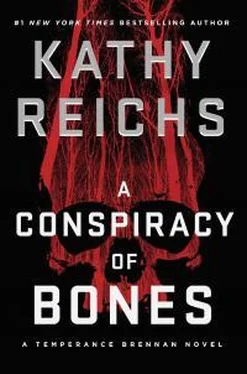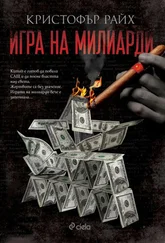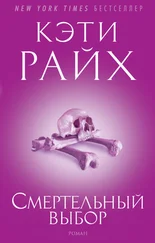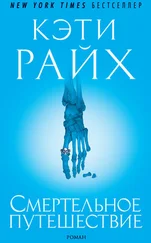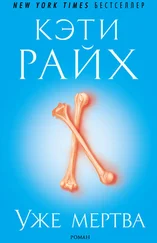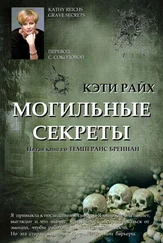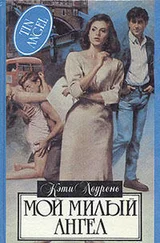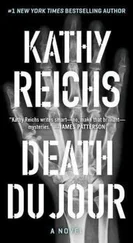The man’s gaze shifted from Slidell to me and back. Remained expressionless as he directed a question to his receptionist.
“Were you shown proper identification?”
E. Desai nodded, lips now tightly compressed.
“I’m Dr. Aryan Yuriev.” Yuriev was short, with curly brown hair, an off-angle nose and upper lip, and a chin showing a whole lot of attitude.
“How may I help you, Detective … ?” Voice rising in question.
Slidell snatched the composite from the desk and held it up. “I’ll make it quick. You know this guy?”
Yuriev glanced at the sketch for a full half second. Then, “Do you have a warrant, sir?”
“Do I need a warrant?”
“You surprise me, detective.” Not looking surprised. “We both know I’m not at liberty to discuss a guest.” Realizing his mistake. “Had that man been a guest here.”
“And you’re thinking your ‘guests’ ”—using air quotes—“enjoy doctor-patient privilege?”
“The ashram provides many services for those seeking spiritual healing. Among them is medical care should the need arise. That is my function. And as a licensed physician, my interactions with those I treat are strictly confidential.”
“How about I refresh your memory?” Slidell’s tone was taking on a familiar edge. He suspected Yuriev was lying. “The name Felix Vodyanov mean anything?”
Yuriev said nothing.
“Felix Vodyanov. You wrote him script for—” Slidell curled upturned fingers in my direction.
“Depacon, Zoloft, Seroquel,” I supplied.
Yuriev continued to stare coolly.
Slidell waggled the sketch. “Suppose I tell you the guy’s dead. That put a new spin on your doctor-patient bullshit?”
Hearing a sharp intake of breath, I reoriented subtly. E. Desai was still avoiding eye contact, but a red blossom was spreading on each of her cheeks.
A few beats as Yuriev decided his course. Behind me, E. Desai had gone very still.
“Sparkling Waters is a private facility, detective. You have no warrant. I have explained my position, and now I am asking you to leave. Should you not comply, you will be trespassing, and I will call security to have you escorted from the grounds.”
“We’re going. But take it to the bank, asshole.” Slidell now sounding dangerous. “I’ll be back.”
“An occasion to which I look forward with relish.” Flash of unhealthy gums, then Yuriev placed his palms together, bowed slightly, retreated into his office, and closed the door.
Slidell and I were crossing the parking lot when a voice called softly. “Wait.”
We turned. E. Desai was hurrying toward us with all the grace of a startled wombat. I was right about the sandals. Birkenstocks.
Slidell checked his watch. A mannerism to redirect frustration. We both knew it was noon.
E. Desai closed in, breathing hard, face now homogeneously red. I could smell her patchouli cologne and the perspiration it was meant to conceal.
Slidell crossed his arms, spread his feet, and eyed her impatiently. A sheen of sweat made his face look like shiny red plastic.
“It’s him,” she said, casting a quick look behind her. “He was a guest.”
“You’re certain?” My pulse tripping.
E. Desai nodded, eyes wide. “Is he really dead?”
“What can you tell us about him?” I asked.
“I don’t interact with the guests.” Slight dip of her brows. “Was his name Vodyanov? Oh, dear.”
“When was he here?”
“More than once. Last year, for sure.”
“He just come for the monk junk? Or was something more wrong with him?” Slidell, sharp. The sun was directly overhead, a hot white ball in a sky hosting very few clouds.
“I don’t interact—”
“Why was Yuriev treating him?”
“I don’t know. I swear.”
“Do you have contact information for Mr. Vodyanov?” I asked gently.
She shook her head.
“A phone number? An address?”
Another head shake.
Slidell shifted his weight and fist-jammed his hips. A dark green crescent circled each underarm. The rest of his shirt resembled wilted lettuce.
“You should talk to Asia Barrow.” Lowering her voice to the same hush she’d used on the phone. “She was his primary counselor.”
“Was?”
“She’s doing something else now.” Furtive glance over one shoulder. An evasion? A lie?
“Do you know where Asia lives?”
“I do.” Dragging sweat-soaked strands from her forehead. “I can’t tell you how.”
“Why Asia?” I asked, handing E. Desai my card.
“If anyone knows anything about your person, it would be Asia.”
11
Slidell dropped me at the annex, then blistered off to the Law Enforcement Center, on fire to review the Jahaan Cole file. Knowing he’d be at it for hours, maybe days, I went alone to see Asia Barrow. Skinny had argued against it, of course. I’d promised to be careful and keep in touch.
The address E. Desai gave me was in Mooresville but not the pricey lakefront area favored by bankers and lawyers making the daily slog uptown for the privilege of owning Catalinas and riding mowers. The unfashionable rural part, too far east of I-77 to be of interest to anyone not conversant in John Deere.
From the interstate, the nice Waze lady speaking through my cell phone directed me onto a two-lane winding through fields and scruffy woodland. A farmhouse here, a trailer there. A complicated transformer station. Thirteen miles, then she sent me onto a road with no markings at all. I drove through what must have appeared on a Google Maps satellite view as a knobby green finger of forest. Ten minutes, then I was informed that my destination was on the right.
A rusty mailbox leaned at an angle never intended by its installer. No number, no name. No red flag to be raised for outgoing correspondence.
I looked ahead and behind me. Saw only pavement shimmering like sand in a desert mirage. Not a vehicle in sight.
Bad idea? Probably.
I made the turn.
The driveway was dirt with sporadic patches of gravel. I passed below a mix of pine and hardwood for a long two minutes. Suddenly, the road dipped, changed its mind, and turned sharply uphill.
The few loner clouds were now buddying up into larger clusters. As I crept forward, wishing the intrepid Waze lady was riding shotgun, shadows mottled my windshield, staccato moments of darkness and light filtering through overhead needles and leaves.
Another eon, or thirty seconds, then I crested a hill.
And braked hard. Foot shaky on the pedal, I reached for my water. Drank. Rescrewed the cap.
A structure squatted at the back of an oblong clearing measuring about sixty yards by twenty. It was small, more shack than house. The green paint, faded and peeling, made me think of the anoles that molt and leave their skins stuck to the annex pillars. Blue-and-white curtains hung, limp and dejected, in windows to either side of a sagging front door. The windows were screened and open. The door was screened and closed.
A covered porch stretched the length of the building, adding a certain je ne sais quoi to the architectural style. Not so the junk piled along it. Newspapers. Scooters and bikes. A console TV designed to fit into a corner. An old window air conditioner. Stacked Tupperware tubs, their contents resembling shadowy creatures intent on escape.
A chrome-and-leather chair sat to the left of the door. Beside the chair, a floor-model ashtray, the kind once placed outside elevators and in hotel lobbies.
On the lawn, had there been grass, was a scattering of items that hadn’t made the cut for the porch. Tires. An ancient Frigidaire washer. A blue toilet with a Hoover upright rising from the bowl. A plastic playhouse molded into the shape of a castle, cracked and coated with mud.
Читать дальше
